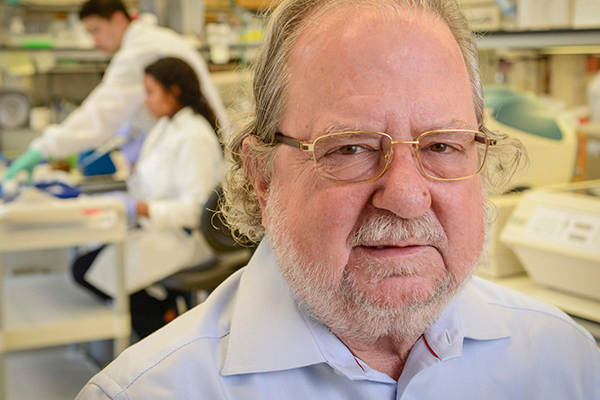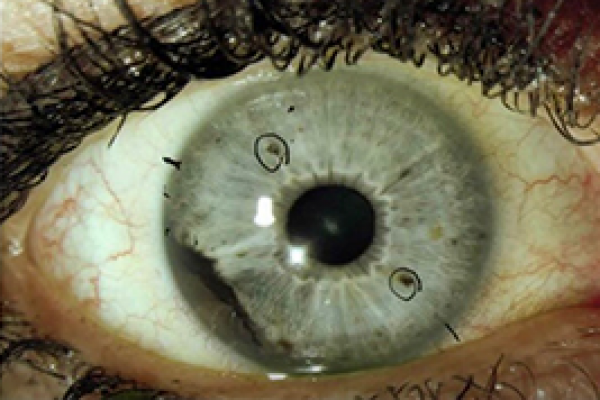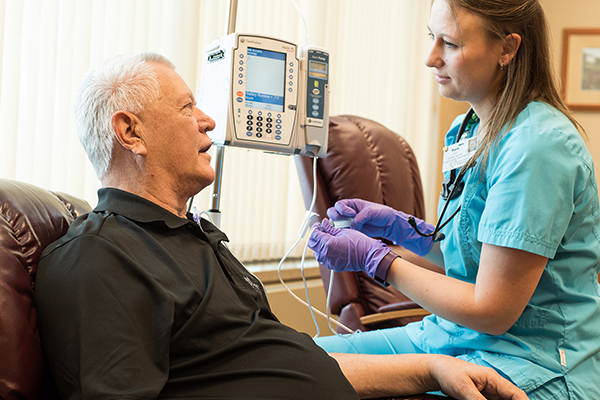Category: Science
MRA Advisor & Grantee Dr. Allison Awarded Nobel Prize for Transforming Cancer Care
By Cody Barnett, MPH, MRA Senior Director of Communications & Patient Engagement | 28 November 2018 In News, Science, Treatment
MRA Scientific Advisory Panel Member & Grantee Dr. Allison Awarded Nobel Prize for his pioneering research to harness the power of the immune system to attack cancer. His work in immunotherapy, which began in the 1990’s, was audacious at the time. It helped to mainstream an entirely new class of tools in the arsenal against cancer; joining the likes of chemotherapy, radiation, and surgery.
Dr. Marc Hurlbert Joins MRA as Chief Science Officer
By Cody Barnett, MPH, MRA Senior Director of Communications & Patient Engagement | 20 November 2018 In Science
Dr. Marc Hurlbert has built his career advancing medical research in support of patients. Now, as of this month, he will translate his skills, relationships, and enthusiasm to achieving our mission of ending death and suffering due to melanoma as MRA’s Chief Science Officer.
When Astrophysics & Melanoma Collide
By Cody Barnett, MPH, MRA Senior Director of Communications & Patient Engagement | 16 November 2018 In Science
Using lessons, processes, and tools from the field of astrophysics, Dr. Taube is studying melanoma in all new ways.
Improving the Lives of Melanoma Survivors
By Cody Barnett, MPH, MRA Senior Director of Communications & Patient Engagement | 15 October 2018 In Prevention, Science
Melanoma survivors are at a 9-fold increased risk of developing another melanoma. Unfortunately, 20% of survivors reported a sunburn in the past year and 10% intentionally went outside for a tan – both strong predictors of inappropriate sun exposure.
Older Patients Do Better on Immunotherapy
By Cody Barnett, MPH, MRA Senior Director of Communications & Patient Engagement | 8 October 2018 In Science, Treatment
In Dr. Weeraratna's study, older patients did better on immunotherapy than younger patients. This surprising result is the opposite of what was expected.
Using Zebrafish to Shed New Light on Melanoma
By Cody Barnett, MPH, MRA Senior Director of Communications & Patient Engagement | 29 August 2018 In Science
Dr. Liz Patton, a MRA-funded cancer researcher at the Medical Research Council Human Genetics Unit at the University of Edinburgh, is fascinated by learning how things work. Patton has focused her research on better understanding how melanocytes – the cells in our skin that provide us our coloring – develop, divide, migrate, and in some unfortunate circumstances, proliferate uncontrollably turning into melanoma. Her work is providing critical insight into the origin of melanoma and what spurs melanoma to spread throughout the body.
Maintaining the Pace of Melanoma Innovation in the Era of an Evolving Standard of Care
10 August 2018 In Science, Treatment
There is no doubt that treatments for metastatic melanoma have changed dramatically in the decade since MRA’s founding in 2007. How do we keep up the momentum?
Uveal ‘Clusters’ in Auburn, AL and Huntersville, NC
By Cody Barnett, MPH, MRA Senior Director of Communications & Patient Engagement | 18 July 2018 In Allies & Partnerships, Melanoma Stories, News, Science, Treatment
When we talk about melanoma, it’s easy to forget that cutaneous – the most common variety that forms on the skin – isn’t the only game in town. Uveal represents about 5% of all melanomas diagnosed each year. So, when dozens of people from two towns in North Carolina and Alabama were diagnosed with the rare cancer alarm bells sounded.
Applying AI to Melanoma Detection
5 July 2018 In Prevention, Science
Is AI the future of detecting melanoma early, when it is easiest to cure?
Making the Most Out of Immunotherapy
11 June 2018 In Science, Treatment
Learn what MRA-funded investigators are doing to optimize immunotherapy for patients.










